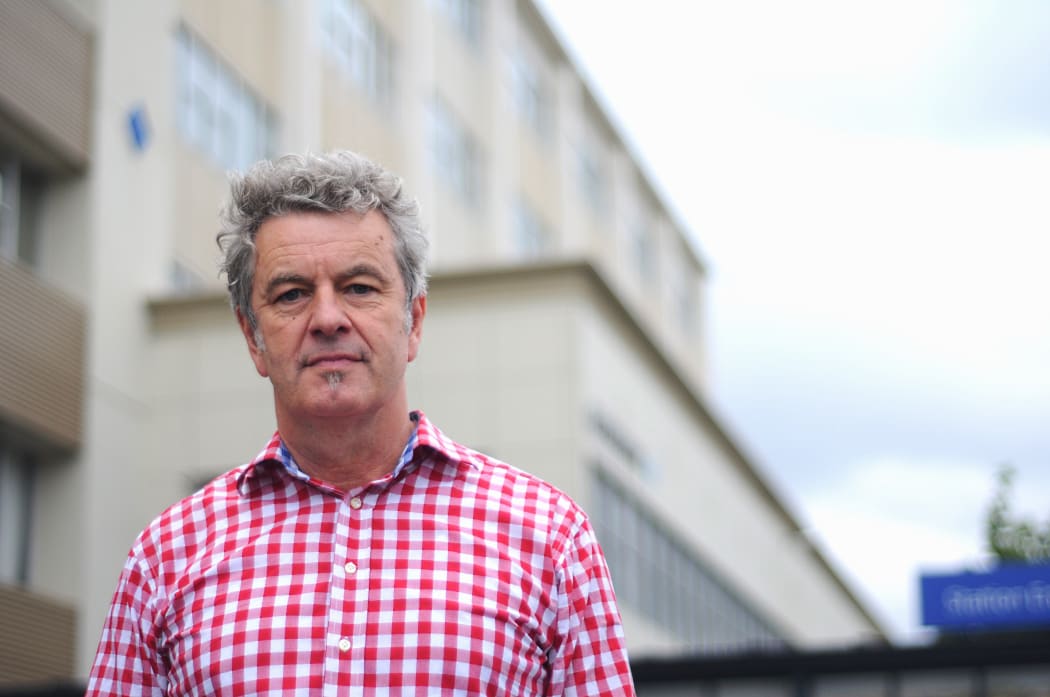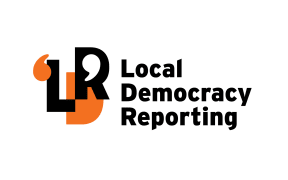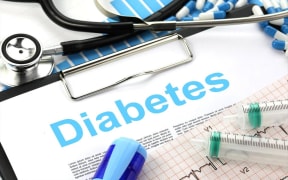New Zealand needs to change how it fights the scourge of diabetes, which is costing the country millions every year to treat, a Middlemore Hospital specialist says.

Dr Brandon Orr-Walker says New Zealand needs to use some of the same methods it used to reduce smoking in the fight against obesity and diabetes. Photo: LDR / Stephen Forbes
Counties Manukau Health endocrinologist Brandon Orr-Walker, who works at Middlemore Hospital, said the biggest factor driving the diabetes epidemic was obesity.
"The key to prevention is taking a long hard look at what is causing this. And the single biggest cause is obesity," he said.
Dr Orr-Walker said there were also genetic, ethnic and socio-economic factors at play in areas like South Auckland. But he said the fact the obesity problem was in the poorest parts of the country was a first world problem.
According to the Ministry of Health, diabetes is the country's biggest and fastest-growing health condition and South Auckland has the highest number of people diagnosed with it in New Zealand.
Figures released last year showed there were 45,266 people registered in the Counties Manukau area with the condition in 2019.
Dr Orr-Walker said previous lessons learned from the battle to reduce smoking should be applied to obesity to fight the growing impact of diabetes.
He has previously worked as an advisor to two health ministers and said it was not a "nanny state" solution, as much as the policy needed to fight a problem which had now reached epidemic proportions.
Dr Orr-Walker said the shift towards increasing the tax on cigarettes, banning the sponsorship of sports events by tobacco companies and the introduction of plain packaging and the use of images on packets of cigarettes to show people the effects of smoking had worked.
He said using the same approach with unhealthy foods and drinks would produce similar results.
"It's not about taking away people's personal freedoms, but reminding people how we can live successfully in these modern times," Dr Orr-Walker said.
"Taxing things that have a known social cost is a proven strategy when you look at things like smoking. We need to use incentives to change people's behaviour," he said.
"We've got to get rid of some of the economic generators that make it easier to buy unhealthy food over healthy food."
Last year, the Association of Salaried Medical Specialists (ASMS) criticised the then-Minister of Health David Clark for failing to act to regulate the country's food industry to reduce obesity.
ASMS members Dr David Galler and Dr Jeff Brown said there was a growing body of evidence that regulation as part of a broader primary prevention strategy was effective in reducing obesity rates and its impact on society.
They also said New Zealand did not rely on self-regulation when it came to alcohol, tobacco, road safety and gun control, all of which impacted on our health and wellbeing, and were a drain on society's resources.
The Ministry of Health said there were more than 250,000 people in New Zealand who had been diagnosed with diabetes (mostly type 2) and the condition was more common among Māori, Pacific and South Asian people.
The number of people with both types of diabetes was also rising - especially obesity related type 2 diabetes.
The New Zealand Food and Grocery Council is a lobby group representing food and beverage manufacturers and suppliers.
Chief executive and former National MP Katherine Rich agreed with Orr-Walker that obesity was a major factor contributing to diabetes in New Zealand. She said it was a complex issue that did not have an easy fix.
"We all have to work hard as a community to prevent obesity," Rich said. "The food industry has made clear for many years it has a part to play in encouraging healthier lifestyles."
She said using taxation to combat obesity was not a viable solution however.
"Food taxes are regressive and just make food more expensive without cementing change in behavior. Tobacco taxes are, of course, applied at extremely high levels," Rich said. "No country has implemented tobacco-level taxes on food. There are also unintended consequences of food taxes.
"In Mexico, where there are food and beverage taxes, the cost of tax was smoothed across all products, so unfortunately the price of all products - including water - went up."
Dr Orr-Walker said tax was not the one or only answer. "But look at how we lived our lives in the early 1980s compared to how we live now, because that is where diabetes really took off in the Western world."
He said the number of people with diabetes in South Auckland was continuing to grow.
"If the food industry wants to be part of the solution it can be. But there's plenty of evidence it's been part of the problem."

Local Democracy Reporting is a public interest news service supported by RNZ, the News Publishers' Association and NZ On Air.





